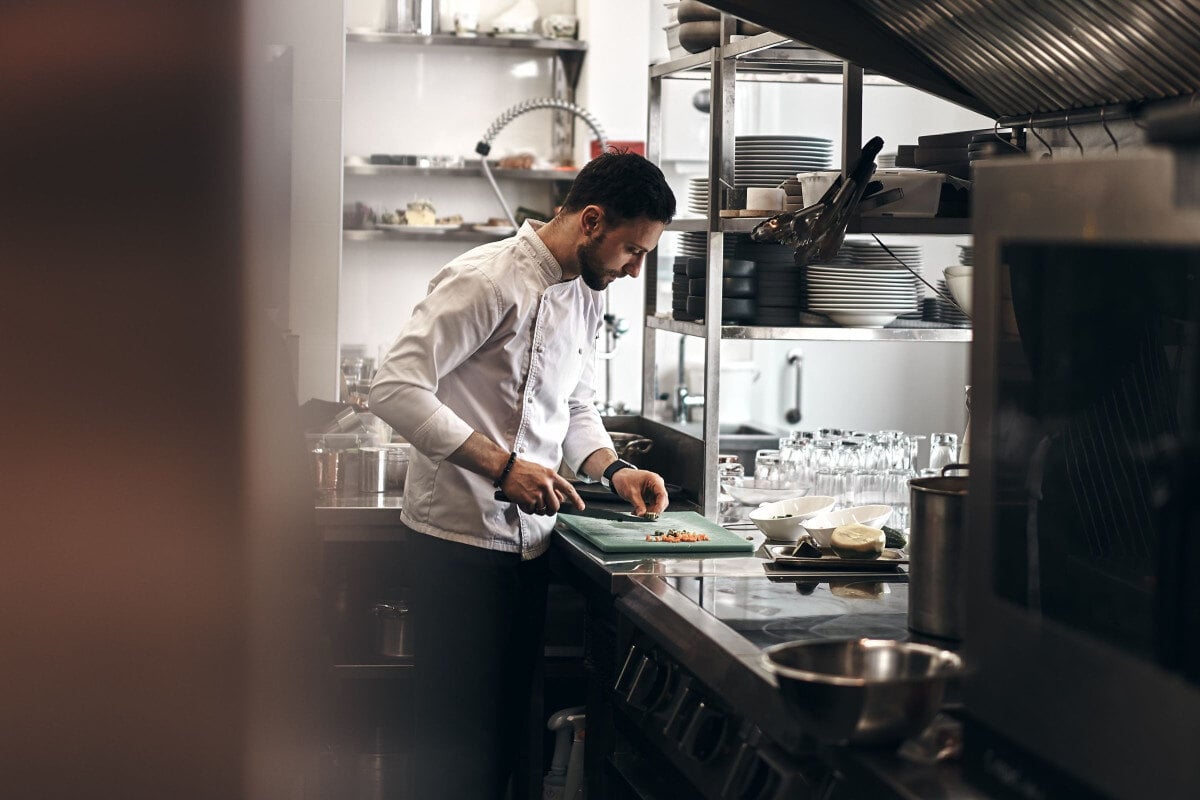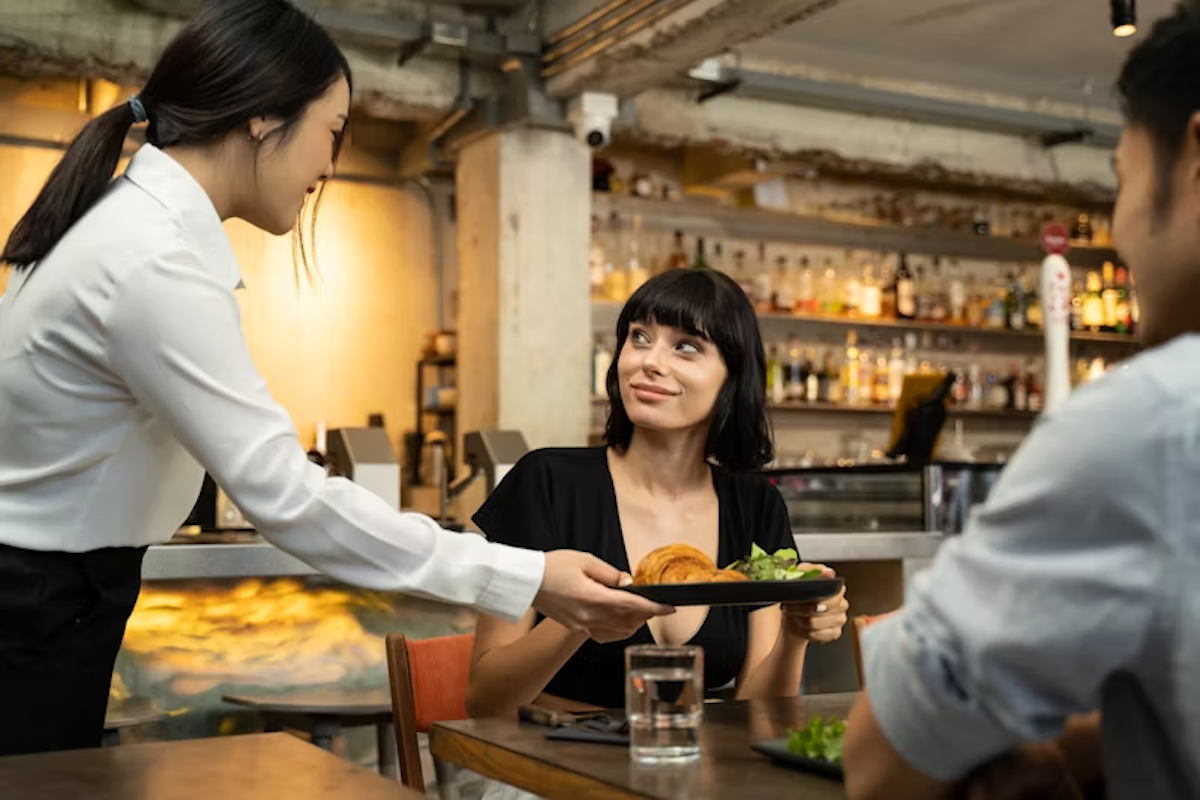5 Restaurant Consumer Spending Trends to Know in 2025
Consumer spending is a big factor in how the restaurant industry operates, especially as we move through 2025. Inflation has shifted how people spend...
Is your brand tapping into these three unshakeable pillars of guest loyalty in 2025?
6 min read
Sep 23, 2024

Are you looking to expand your restaurant business without the hefty overhead of a traditional brick-and-mortar restaurant? Virtual kitchens offer a promising and cost-effective solution.
These modern food facilities, also known as ghost kitchens and dark kitchens, cater exclusively to online delivery and pickup orders. By removing the need for a dining room and on-site customer service, virtual kitchens allow restaurant owners to focus solely on preparing delicious food.
As the demand for food delivery continues to soar, virtual kitchens have become increasingly popular. As of 2023, there are tens of thousands of virtual restaurants in the US, with Uber Eats alone listing over 40,000 virtual restaurants in North America, quadruple the number from only two years ago. The market size for virtual kitchens is projected to reach $13.97 billion by 2030, growing at a compound annual growth rate (CAGR) of 12.5%.
In this article, we'll explore the benefits of launching a virtual kitchen, discuss the key factors to consider and provide practical tips for success. If you're ready to take your business to the next level of profit and flexibility, keep reading as we get into virtual kitchens.
A virtual kitchen is a restaurant that operates without a traditional dining room and offers orders directly for delivery and pickup. Instead of serving customers on-site, these kitchens prepare and deliver food through first-party online ordering and third-party delivery apps like DoorDash, Grubhub, and Uber Eats. This innovative model allows restaurants to reach a broader audience without more physical space.
Virtual kitchens can be standalone businesses or extensions of existing brick-and-mortar restaurants, providing a flexible and cost-effective way to expand your reach and increase revenue without raising a lot more capital or investing more of your own money.
Virtual kitchens are designed to optimize food preparation and delivery. They often use specialized software to manage orders and logistics efficiently. These kitchens typically operate out of shared commissary spaces or dedicated kitchen facilities, where multiple virtual brands can coexist and share resources.
These types of collaborative environments allow you as a restaurant operator to concentrate on creating high-quality food and exceptional customer experiences while minimizing overhead costs. By leveraging the virtual kitchen model, you can maximize efficiency and streamline your operations, making it easier to adapt to the ever-changing demands of the food delivery market.
Virtual kitchens provide a flexible, cost-effective solution when you’re ready to meet the growing demand for delivery-based dining. By adopting this model, you can unlock several key advantages that will help your business thrive:
The restaurant industry has changed drastically in recent years. The pandemic and the rise of food delivery apps have created a fertile landscape for virtual kitchens. Even before COVID-19, the food delivery services industry was expected to grow from $43 billion in 2017 to $467 billion in 2025 – now it’s expected to be $1.85 trillion by 2030.
Virtual kitchen setups not only require lower capital investment compared to a traditional full-service restaurant, but they also offer flexibility. You no longer need a landlord or a prime location in a busy part of town. A well-placed virtual restaurant can thrive with just a commercial kitchen space and a commanding online presence, allowing you to serve more customers across multiple locations without the expense of a large footprint.
Starting a ghost kitchen may seem as complex or time-consuming as a regular restaurant, but you can set it up quickly and efficiently with a clear plan. If you're wondering, “How do virtual kitchens work?” it all starts with the proper setup and technology. Follow these steps to get your virtual restaurant concept running smoothly.
Step 1: Set Up Your Kitchen
Begin by preparing your physical space. Whether you’re converting an existing restaurant kitchen or using a dedicated commercial kitchen, ensure you have the necessary equipment to support your menu and maximize efficiency.
Step 2: Leverage Technology
Integrate a Kitchen Display System (KDS) to streamline your operations. A KDS helps organize online orders, track preparation times, and manage delivery efficiently. Connecting this with all of the third-party delivery apps you use ensures a seamless workflow.
Step 3: Establish an Online Ordering Platform
Create a user-friendly online ordering system and integrate it with delivery apps like DoorDash or Uber Eats. This will help you reach a larger customer base and simplify the ordering process.
Step 4: Organize Curbside Pickup and Delivery
Set up smooth pickup and delivery options to meet customer preferences. Efficient delivery operations and reliable tracking ensure timely orders and improve customer satisfaction.
By following these steps, you'll be well on your way to running a successful virtual kitchen.
One key advantage of a ghost kitchen is the ability to run multiple virtual restaurant brands out of the same space. This lets you launch various concepts from one kitchen, like a taco and smoothie brand. Beyond using a KDS, implementing order management software can help streamline incoming orders from multiple platforms. In addition, consider using inventory management systems that track ingredient usage in real-time, automatically updating stock levels and providing insights to avoid overstocking or running out of key items.
Paytronix’s online ordering software offers an all-in-one solution for integrating loyalty programs, managing customer feedback, and optimizing delivery apps. Our platform provides a seamless experience for both your team and your customers.
Investing in tech is essential to virtual restaurants’ success. Since these kitchens are delivery-first, spending on front-of-house (FOH) furnishings is less critical. Instead, focus on technology like:
This tech-centered approach lets you focus on what matters: food quality and a memorable customer experience.
Growing your virtual restaurant business requires strong marketing:
If you want technology to take care of repetitive, detailed work so you can focus on revenue and retention, our marketing automation tools help you effectively reach new customers and reward loyal ones.
Like any business model, ghost kitchens have their own challenges. Poor location choices (causing too much delivery distance between your business and customers) and a lack of understanding of the local market can lead to closures. However, you can mitigate these risks by leveraging data and analytics to have insights into customer preferences and optimize operations.
Moreover, using modern technology to track inventory, manage orders, and streamline your kitchen’s workflow will reduce those types of operational inefficiencies and support long-term success.
Many virtual kitchen brands have succeeded by leveraging this model to reach more customers and streamline operations.
It’s easy to argue virtual kitchens represent the future of the restaurant industry. They provide a flexible, cost-effective model that allows restaurant operators to expand their business and increase revenue while customers get a bigger range of options at competitive price points. With the right technology and marketing strategies, you can successfully transition to a virtual kitchen concept.
Whether you’re just starting or looking for a virtual kitchen planner to guide you, the opportunities are immense. Take advantage of this growing trend and explore the possibilities of opening a ghost kitchen.
Discover how Paytronix can help you manage your virtual kitchen operations effectively. Request a demo today!

Consumer spending is a big factor in how the restaurant industry operates, especially as we move through 2025. Inflation has shifted how people spend...

Labor costs represent one of the most significant operational expenses in the restaurant industry and controlling them has become increasingly...

Table turnover is one of the most critical metrics in the restaurant business. It affects everything from how much revenue you make per shift to how...